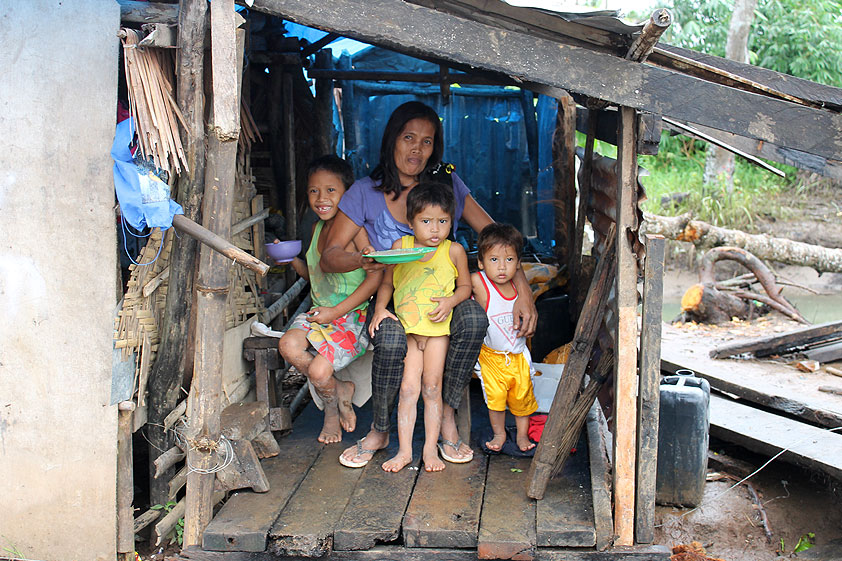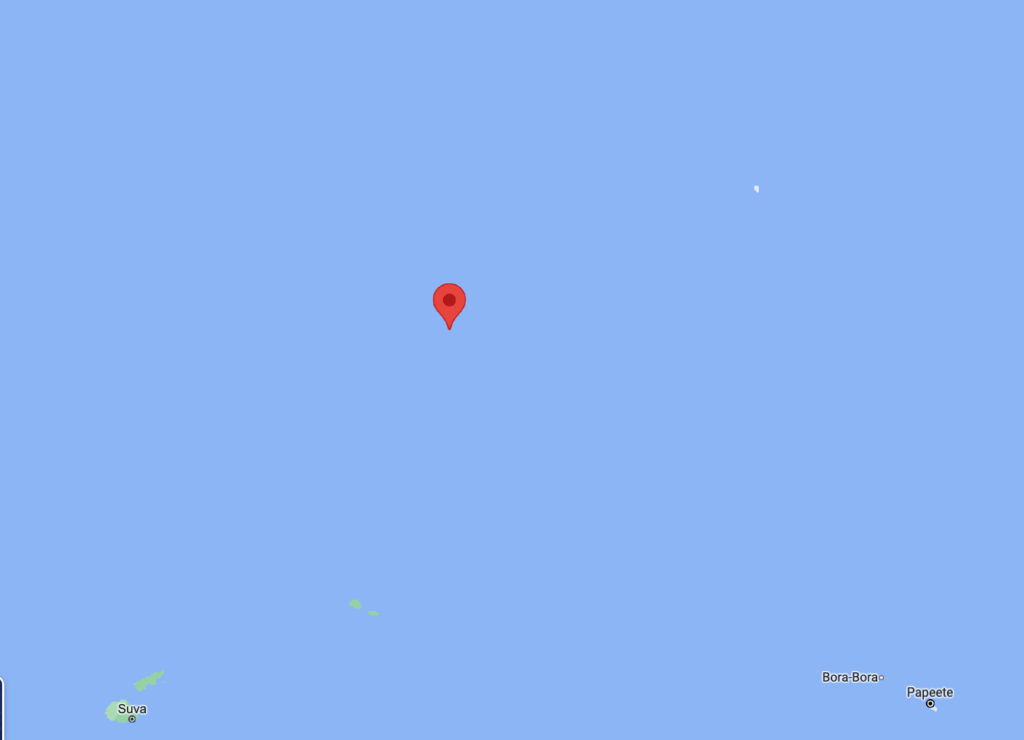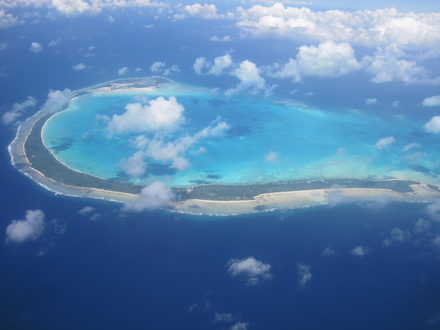$1642.16 per capita a year.
Maybe it’s the name. It’s pronounced keerybass. You might have booked a flight thinking you’re headed for a pub in Dublin with a name like that, but no, you would end up in the middle of the Pacific. Kiribati is the poorest island nation in Oceania. In an entire year the average citizen makes about enough for a really fine dinner for four at a 3 star restaurant in NYC (plus drinks, tax, tip, coat check, bread charge, 5% medical and parking). But hey, they have beaches….for now.
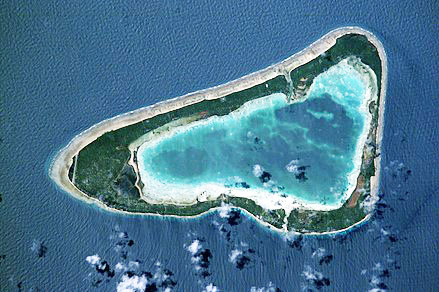
This is the only country which is in all four of the cardinal hemispheres. You will remember these islands as the Gilbert Islands if you remember WWII during which the place really lit up. Not much going on there now. This island nation is five times the size of Texas and if seawater is ever worth selling they will be eating at 3 star restaurants in Midtown.
The islands have been inhabited by Melanesians and Micronesians for thousands of years. In pre colonial time these folks had the reputation of being incredibly violent people with warring fiefdoms favoring traditional weapons of shark-tooth embedded wooden axes, knives and swords. They made armor and helmets of dense coconut fibers. They eschewed killing at a distance so they didn’t use thrown spears or arrows because the idea was to revel in the look of your fellow combatant’s life draining out of his body during hand-to-hand combat. Even when they had access to guns and cannons they preferred to cut up their neighbors with old timey weapons. Combat became ritualized and instead of playing soccer with a ball they liked to remove the head and and kick it around. Once the British took charge the fun and games stopped.
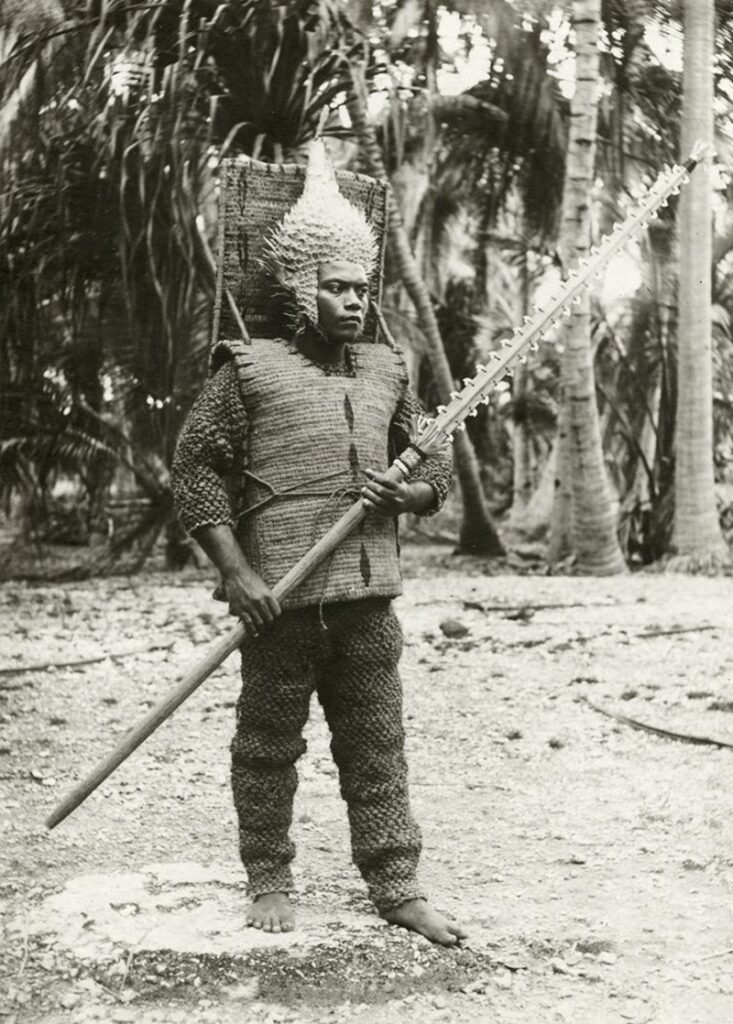
There are hundreds of islands but 90% of the Kiribati population lives on the main islands which have some of the highest population densities in the Pacific, rivaling (without any tall buildings) cities like Hong Kong and Singapore. This overcrowding produces a great deal of pollution, worsening the quality and length of life. Due to lousy sanitation and inadequate water filtration systems, only about 66% of the population has access to clean water. Waterborne diseases are growing to record levels every year throughout the islands. Poor sanitation has led to an increase in cases of conjunctivitis, diarrhea, dysentery, and fungal infections. Around 57% of adults smoke tobacco on a regular basis, the highest proportion in the world. Due to this and other lifestyle diseases, such as diabetes, there has been a dramatic spike in amputations on the islands, doubling in a few years (luckily they have the just the tools for a quick removal of a limb). As a consequence of all this, the population of Kiribati has a very low life expectancy at birth of 68 years. 178th out of 183 (the U.S. is a pathetic number 40 right after Turkey).
Add to this the fact that this low slung country of coral atolls is going to to disappear in the next few decades. They accept that in just 30 years the place will be unlivable. The citizens (about 120,000) and their government have resigned themselves to this rather graphic example of the “Chinese hoax.” Many other coastal areas will also be affected from Bangladesh to Manhattan Island but shoreline mitigation is being contemplated in many places.
Let me explain my unpopular take on global warming: I met the people responsible for eliminating the plastic drinking straw which was based on this photo.
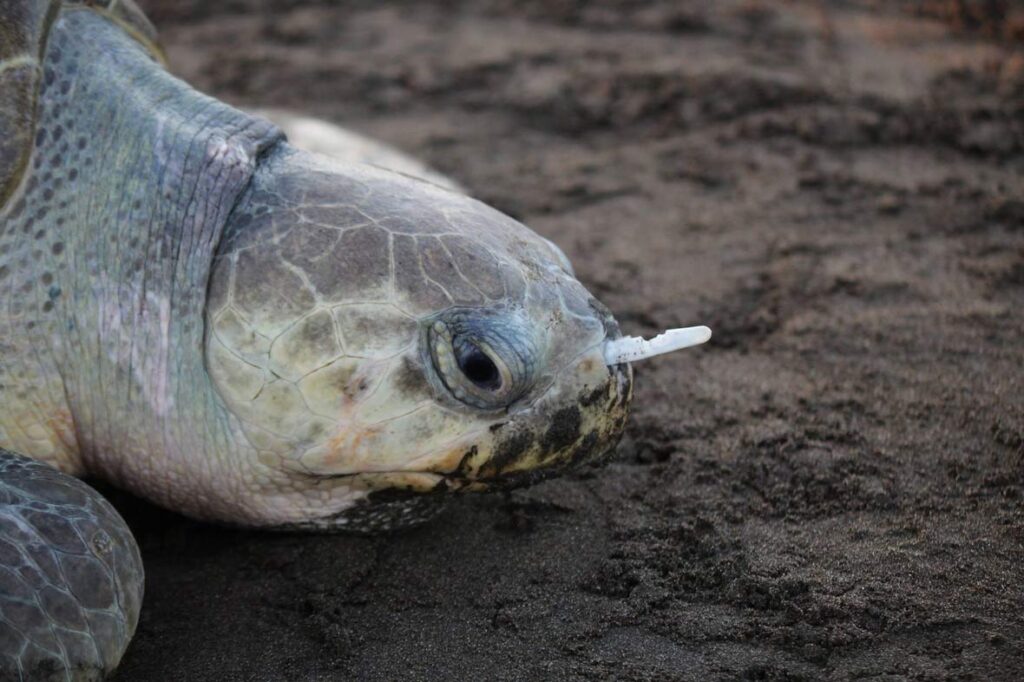
I explained to them I thought what they did of any kind and didn’t reduce sea level rise at all and that I believed that what they did had zero benefit and was actually counterproductive. They told me they were proud of their actions and quoted an invented statistic of billions of straws in the oceans. I believe this is not just untrue but irrelevant. I asked why they didn’t do a hard thing like go after plastic bottles or unnecessarily elaborate packaging or even fossil fuels. They said, “One had to start somewhere.” But their pride in axing the plastic straw gave me the feeling that they and others thought they were making a difference. Patting oneself on the back for an easy win leads to compassion complacency. The hard problems remain; ocean going plastic straws is a distraction. It’s statistically insignificant and if you string a whole lot of together (people are going after the McDonald’s stirring stick too) together you have no effect and in the end no progress in reducing plastic in the ocean is made.
The fact is global conferences with unrealized goals and local recycling result in the same outcome; a steady increase in the atmospheric temperature resulting in melting ice and inundated coastlines.
But here’s news. There are winners in this scenario. Russia is the biggest winner. They have no seacoast of consequence and now have a warmer country. The Black Sea is their aquatic playground and there the level will be unchanged. Plus, they already embrace the Speedo so they are well costumed for the warming planet.

In Genesis there was a report of a great flood. Maybe it was predictive and not historic. In the last Ice Age about 12,000 years back the seas dropped 600 feet. Now we face up to a three foot rise in a century.
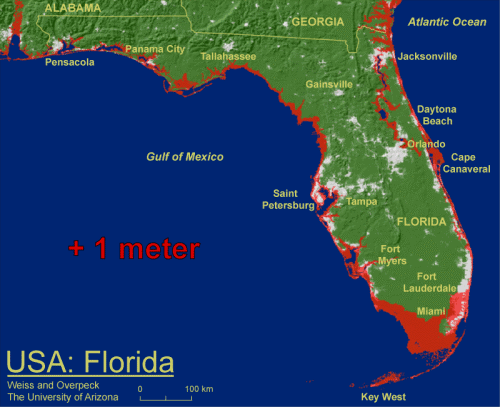
Recycling and driving an electric bike; using LEDs and battery powered Lamborghinis might make you feel good but these measures have no effect on world temperature increase. But, you say, you have to start somewhere. Sure. Grow your own food, walk everywhere, stop using electricity and forget your cellphone and TV. Make your own clothes, live in a tiny house and cut the population in half.
Naw, too hard. OK then. Break out that Speedo and welcome your new neighbors, a nice family from Kirabiti.
